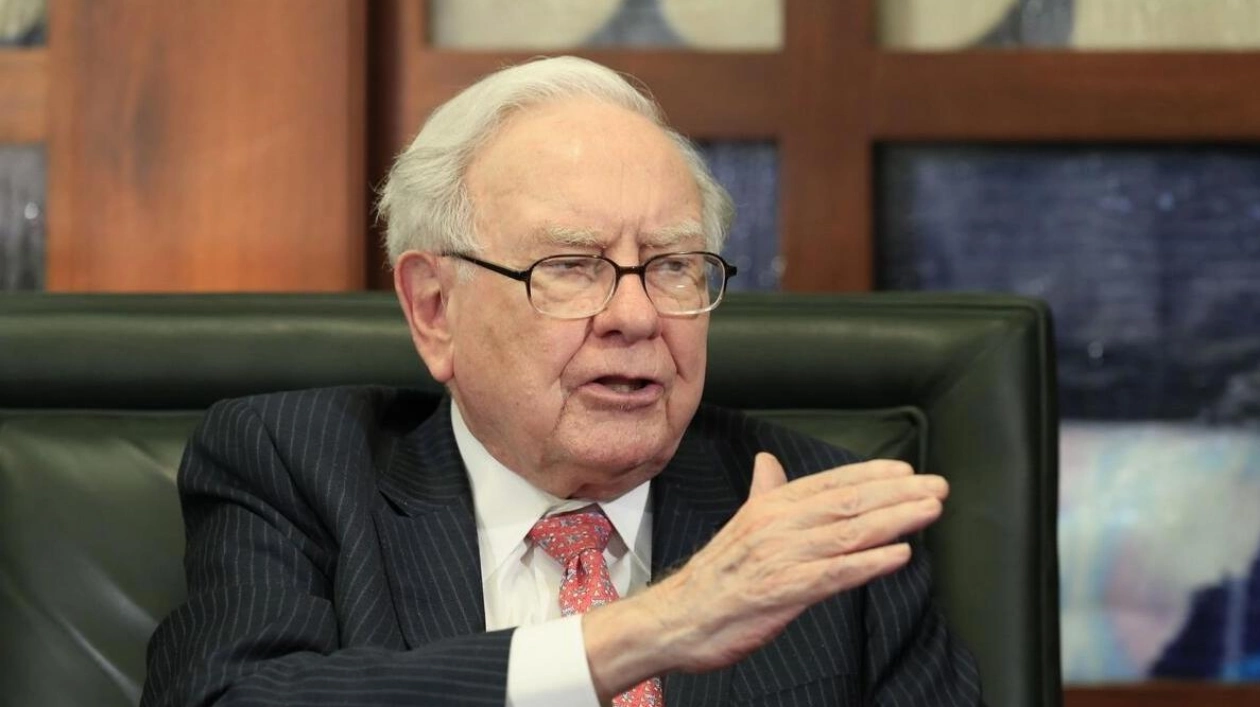Warren Buffett seems to have lost faith in stocks, allowing cash reserves at Berkshire Hathaway to balloon to nearly $277 billion and reducing its stake in Apple by about half, despite the conglomerate reporting a record quarterly operating profit. Berkshire's latest financial results, released on Saturday, indicate that the 93-year-old Buffett, renowned as one of the world's most respected investors, is becoming increasingly cautious about the broader U.S. economy or the elevated stock market valuations. These results came after a stock market downturn pushed the Nasdaq into correction territory and a disappointing jobs report raised concerns about U.S. economic activity and the Federal Reserve's timing in cutting interest rates.
Analysts like Cathy Seifert from CFRA Research, who rates Berkshire as a "buy," suggest that the company's defensive stance is evident when considering both its financial position and macroeconomic data. Berkshire's cash holdings increased to $276.9 billion by June 30, up from a previous record of $189 billion three months prior, primarily due to the sale of approximately $75.5 billion worth of stocks. The company sold around 390 million Apple shares in the second quarter, adding to the 115 million sold earlier in the year, as Apple's stock surged by 23%. Despite these sales, Berkshire still held about 400 million shares valued at $84.2 billion by June 30. This marks the seventh consecutive quarter in which Berkshire has sold more stocks than it has bought.
Berkshire also significantly reduced its stock repurchases, buying back only $345 million of its own shares, a sharp decline from the $2.57 billion in the first quarter, and none in the first three weeks of July. Jim Shanahan, an Edward Jones analyst who maintains a "hold" rating on Berkshire, expressed concern about Buffett's lack of interest in publicly traded stocks, including his own. "It makes me wonder what he thinks about the markets and the economy," Shanahan said.
Profits from Berkshire's various businesses increased by 15% to $11.6 billion in the second quarter, with nearly half coming from its insurance operations, including Geico, where underwriting profits more than tripled due to higher premiums and fewer claims. However, overall revenue grew only 1% to $93.65 billion, with minimal changes in key sectors like the BNSF railroad and Berkshire Hathaway Energy, and a 12% drop at the Pilot truck stop chain. Consumer spending reductions were also evident, with revenue falling at Berkshire's over 80 auto dealerships as they spent less on new vehicles.
Berkshire's returns from short-term Treasuries are expected to decline once interest rates are cut. Shanahan noted that these factors "may make it challenging for Berkshire to achieve earnings growth in 2025." The Omaha-based conglomerate also owns numerous industrial and manufacturing companies, a major real estate brokerage, and brands like Dairy Queen and Fruit of the Loom. Quarterly net income dropped by 15% to $30.34 billion, influenced by the fluctuating stock prices that affected the value of Berkshire's stock investments.
Buffett has consistently advised shareholders to overlook Berkshire's quarterly investment gains and losses, which often result in significant net profits or losses. Berkshire maintains a commitment to keep a minimum of $30 billion in cash, but allows it to accumulate when suitable acquisition opportunities at fair prices are unavailable. Since mid-July, Berkshire has also sold over $3.8 billion of shares in Bank of America, its second-largest stock holding.
Buffett emphasized at Berkshire's May 4 annual meeting that the company would only invest its cash in opportunities with minimal risk and significant potential returns. He also noted that Apple would likely remain Berkshire's largest stock investment, but the decision to sell was influenced by the 21% federal tax rate on capital gains, which is expected to increase. These sales occurred just two years after Buffett identified Apple as one of Berkshire's "four giants," alongside its insurance businesses, BNSF, and Berkshire Hathaway Energy.
Berkshire and Apple did not immediately respond to requests for comment on Saturday. Profit at BNSF decreased by 3% due to increased legal reserves, offsetting lower operating costs and higher shipments of consumer and agricultural goods. Legal issues also affected Berkshire Hathaway Energy, with profit falling by 17% due to lawsuits against the PacifiCorp utility unit, which has been blamed for causing wildfires in Oregon in 2020. The utility has set aside $2.7 billion for wildfire losses as of June 30, with potential for further increases.
Berkshire's Class A shares closed at $641,435 on Friday, up 18% this year, outperforming the 12% increase in the Standard & Poor's 500. Buffett has led Berkshire since 1965, with Vice Chairman Greg Abel, 62, expected to succeed him as CEO.






